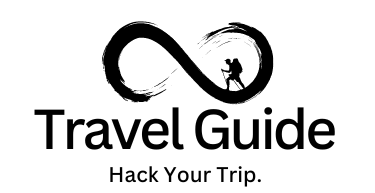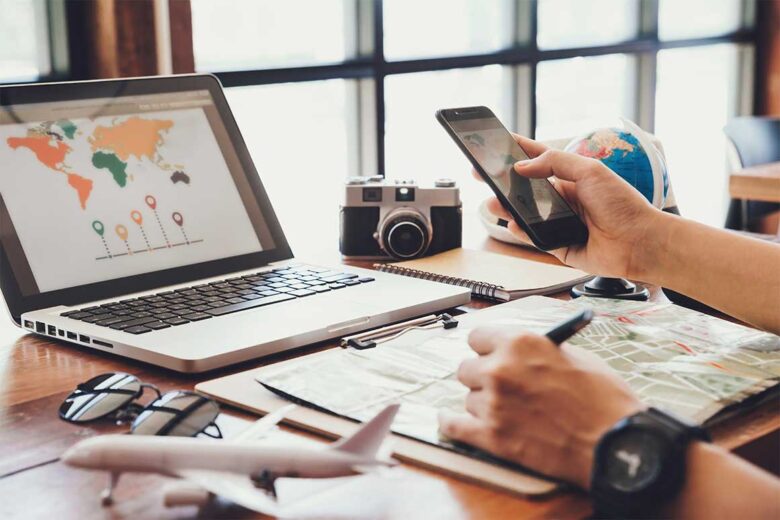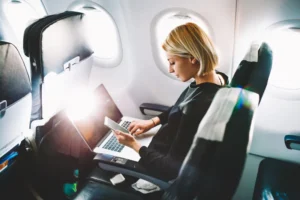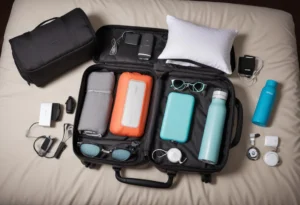One of the greatest things about traveling is that it enriches our knowledge of the world and ourselves. However, let’s be honest: these wonderful experiences have costs attached to them. If you don’t have a sound travel budget, your dream vacation can quickly turn into a financial disaster.
Creating a travel budget is not just about counting coins; it’s about planning an unforgettable journey within your financial abilities. Whether you are organizing a trip across Europe with a backpack or just spending some days on the beach in the Caribbean, knowing all expenses will help you spend more time discovering new places and less time worrying about money.
Get your calculator and some papers ready because we’re going to show you how to create an efficient travel budget that doesn’t leave you broke!
What is So Important About Travel Budget?
A travel budget is like a map towards financial independence when travelling abroad. This helps someone know how much money they can safely spend without risking their savings or future prospects. A budget creates room for better choices as when to break the bank for dinner at that fancy restaurant or choose street food instead. It also lowers anxiety; unplanned expenses become reasonably predictable rather than overwhelming shocks.
Budgeting also fosters exploration within bounds. You might stumble upon local markets where there are hidden attractions instead of touristy places thereby improving your experience while keeping costs down. Abiding by a budget develops discipline as well as responsibility among people who possess them this way would acquire crucial ideas which could apply beyond travels into everyday lives making adventures more exciting both emotionally and financially
Evaluating Your Finances:
Before departing on your trip, it is important to take stock of your financial situation. Knowing where you’re from can affect your final decision in drafting out your personal budgets for example calculating income and expenses form part of determining what goes into these budgets. Begin with summing up monthly incomes as well as outgoings including any side jobs or independent contracts one has been engaged in. And next also note down monthly costs such as rent, utilities, groceries and payments on any debts.
Then evaluate how much money you can save for travel without interfering with necessary expenses after you have a clear image of your financial standing. This is not only about the funds in your bank account; factor in upcoming bills and savings targets as well. Be truthful to yourself regarding which sacrifices you are ready to make. Can subscriptions or eating habits be trimmed? All every little thing counts while coming up with an attainable travel budget.
Selecting Your Destination:
Choosing where to visit for your vacation can be both exciting and overwhelming at the same time. To begin with, take into consideration what interests you most. Are you more of a city person or do beaches tickle your fancy? Your preferences will lead your choices. Research is crucial; identify those places that really make you happy. Find out about their culture, climate and available activities too. Sometimes there are off-the-beaten-path destinations that reveal hidden gems worth exploring as well.
Timing should be considered when deciding on a travel destination because some places will shine in certain seasons, while others can become overcrowded or more expensive at such times. Think about logistics as well—flights, accommodations, and transportation options should seamlessly fit into your travel plans. Stay informed of any restrictions related to travel within different regions so as to avoid being caught unawares. This way you can avoid unexpected obstacles along the way. By taking such approach one can make it easier to choose the right place for their next trip!
Preparing a Realistic Budget:
It is important to set a realistic budget for any trip you take. Begin with estimating how much money you need in total. Consider transport, accommodation, food, activities and souvenirs. Then break these categories down even further Researching average prices at your destination will give you a better idea regarding this aspect of the budgeting process. That way, you are aware of what things typically cost and thus cannot miscalculate costs easily. Also include other additional expenses as well For example, unforeseen charges or last-minute indulgences could disrupt even the most finely drawn plans. Leave at least 10–20% more money than is needed.
Don’t forget about time frames too Longer trips naturally require more finances but may also provide opportunities for discounts on accommodation or meals due to extended stays Go back and revise this budget periodically if there are new details arising or when your focus shifts during planning for the journey Flexibility is good when it comes to managing travel funds.
Ways of Reducing Travel Expenditure:
Travel does not have to be expensive; there are several ways that one can save their money without compromising their experience Always consider flying off-peak periods Midweek flights tend to cost less than those over weekends Be open-minded with dates to get huge discounts Accommodation tends to consume significant sums in no time Check out hostels, vacation rentals or, better yet, try house swapping that is cost-friendly Alternatively, if you are adventurous enough, think of camping!
Moreover, eating out on a daily basis can add up to a lot of money Go for local markets and street food instead of fancy restaurants You can also save more by preparing some meals at your place of stay Using public transportation instead of cabs or rideshares will help save a lot of Not only is this pocket-friendly but it gives you a sense of what the locals’ lives are like Also, do not forget travel rewards schemes as well as credit card points, which can make airline tickets and hotels significantly cheaper.
Planning for Daily Expenses:
Creating a daily spending plan can enhance your travel. It keeps track of how much money you are using when going around new places. The first step involves deciding on how much cash to set aside for each day Divide the number of days you intend to spend on vacation into your entire budget This indicates what you have to spend per day Then allocate your funds towards food, attractions and transport Categorize these costs based on your preferences and priorities. Modify these figures accordingly during your journey.
You might want to keep an app or simple diary with actual amounts recorded in order to monitor real costs so as not to be surprised along the way Embrace flexibility; unexpected opportunities often arise during travel A well-designed daily budget allows for spontaneous adventures without burdening someone’s financial plan.
Tips for Sticking to Your Budget While on the Road:
Managing to remain within your budget while travelling can be difficult, but there are some simple tricks that can help. First, track all your daily expenditures by using an app or a notebook. This will make you responsible and aware of how you spend your money. Think about using cash for your everyday expenses. Withdraw a given amount in the morning so as not to exceed it during the day. Once you run out of money, stop shopping.
Look for local cafes instead of tourist places. Street food or small cafes normally have tastier food at reasonable prices. Make choices spontaneously, bearing in mind the cost implications. Find free activities like hiking trails or local festivals which provide genuine experiences without costing too much.
Conclusion:
A travel budget can help you tame chaos into fun adventures. By planning ahead, you take charge of your finances and have peace of mind when traveling. It’s easy to enjoy spontaneous moments without worrying about excess spending with a clear budget plan. There are richer connections with local cultures that do not involve breaking the bank.
Flexibility is necessary here too; life on the road presents numerous unpredictable opportunities and challenges as well. Changing one’s budget may lead to unforgettable memories in life on the move at any point in time; adjust it if need arises.” The way forward is being open-minded and letting dreams take charge”. Every trip has its own invaluable lessons on how to spend our bucks wisely so that every dollar counts towards unique experiences rather than things.
FAQs:
1. What should I include in my travel budget?
Itinerary, food, transport, activities, insurance and maybe souvenirs. Be comprehensive but realistic.
2. How do I estimate costs for each category?
Research online about the destinations: average prices of hotels and meals, etc. Trip advisor or Google maps can help you with that.
3. Is it okay to adjust my budget after I’ve started traveling?
Yes! Travel is full of surprises. If you stumble upon something great or a deal shows up, feel free to reallocate money.
4. What’s the best way to track spending on the road?
Use your phone’s notes applications or Excel spreadsheets to keep everything organized. By doing this, you won’t have a lot of paperwork to deal with.
5. How can I save money on unexpected expenses during my trip?
Always have some emergency savings allocated within the budget just in case things don’t go as planned. Also, consider taking travel insurance so as to be more carefree along the way.




